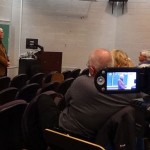Tax Hike Kills Four Times More Jobs than Resisting Casinos
As noted at the end of “Newport Grand Casino Legislation Quietly Amended Based on Twin Rivers Study,” the study on which government officials are relying for their decision took an objectively narrow view of economics when assessing the effects of various scenarios related to casino gambling in the area. Be that as it may, there’s no way around the fact that Rhode Island inaction in the face of Massachusetts casino development will cost the state jobs. (“Rhode Island inaction” should be read to mean the people of Rhode Island, not necessarily the government.)
Depending on the locations and character of the Massachusetts ventures, Rhode Island will lose between 193 and 397 jobs between 2011 (when the study was researched) and 2017. The “likely case” puts the job loss at 319.
Another policy currently on the table — like gambling, with a strong motivational factor being government revenue — is “taxing the rich.” The most prominent version of that proposal has, according to research released by the RI Center for Freedom & Prosperity and the Beacon Hill Institute, a total cost in jobs of 1,372, or more than four times the cost of reducing the state government’s reliance on gambling, rather than expanding its involvement in it.
Observers of local politics will quickly spot the most significant difference between the two proposals: namely, that for one, government revenue and jobs head in the same direction, while for the other, the two factors move in opposite directions.
Choosing not to chase gambling revenue is projected to cost RI’s state government a “likely” $139.5 million from what it would take in during 2017 if Massachusetts were to turn away from casinos. Meanwhile, even after accounting for the loss of jobs and of residents, taxing the rich would collect $105 million.
As Rhode Island works its way through (and hopefully out of) its economic predicament, voters and their elected representatives will have to consider which metrics their priorities ought to elevate.
(Note that the jobs numbers aren’t directly comparable. The baseline used for the “tax the rich” estimate involves an “equilibrium model” — that is, what the economy will look like when the dust settles and all of the effects have been borne out. The baseline for the casino estimate is a “transitional model,” corresponding to a year by year change.)



